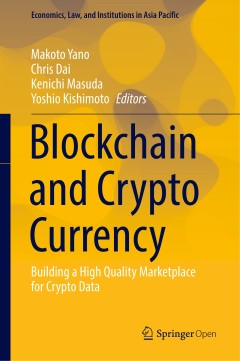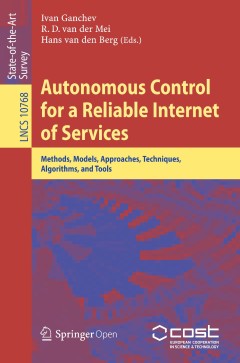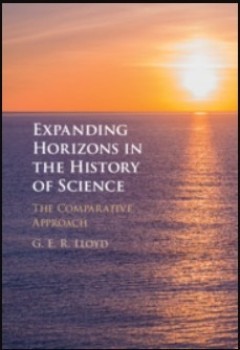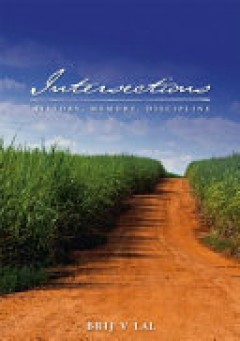Filter by
# Debug Box
/var/www/htdocs/pustaka-digital/lib/SearchEngine/SearchBiblioEngine.php:688 "Search Engine Debug 🔎 🪲"
Engine Type ⚙️: "SLiMS\SearchEngine\SearchBiblioEngine"
SQL ⚙️: array:2 [ "count" => "select count(sb.biblio_id) from search_biblio as sb where sb.opac_hide=0 and ((match (sb.topic) against (:subject in boolean mode)))" "query" => "select sb.biblio_id, sb.title, sb.author, sb.topic, sb.image, sb.isbn_issn, sb.publisher, sb.publish_place, sb.publish_year, sb.labels, sb.input_date, sb.edition, sb.collation, sb.series_title, sb.call_number from search_biblio as sb where sb.opac_hide=0 and ((match (sb.topic) against (:subject in boolean mode))) order by sb.last_update desc limit 10 offset 0" ]
Bind Value ⚒️: array:1 [ ":subject" => "'+\"Science\"'" ]

Computational Thinking Curricula in K–12: International Implementations
An international overview of how policy makers, curriculum developers, and school practitioners can integrate computational thinking into K–12 curricula. In today's digital society, computational thinking (CT) is a critical component of all children's education. In Computational Thinking Curricula in K–12, editors Harold Abelson and Siu-Cheung Kong present a range of professional perspec…
- Edition
- -
- ISBN/ISSN
- 9780262378642
- Collation
- xviii, 304 p. : ill.
- Series Title
- -
- Call Number
- 004.071 ABE a
Multimodal literacy in school science: transdisciplinary perspectives on theo…
This book establishes a new theoretical and practical framework for multimodal disciplinary literacy (MDL) fused with the subject-specific science pedagogies of senior high school biology, chemistry and physics. It builds a compatible alignment of multiple representation and representation construction approaches to science pedagogy with the social semiotic, systemic functional linguistic-based…
- Edition
- -
- ISBN/ISSN
- 9780367714048
- Collation
- xvii, 286 p. : ill
- Series Title
- -
- Call Number
- 507.1 UNS m
Constructing science: connecting causal reasoning to scientific thinking in y…
Young children have remarkable capacities for causal reasoning, which are part of the foundation of their scientific thinking abilities. In Constructing Science, Deena Weisberg and David Sobel trace the ways that young children's sophisticated causal reasoning abilities combine with other cognitive, metacognitive, and social factors to develop into a more mature set of scientific thinking abili…
- Edition
- -
- ISBN/ISSN
- 9780262370615
- Collation
- xi, 374 p. : ill
- Series Title
- -
- Call Number
- 501 WEI c

Cats, carpenters, and accountants: bibliographical foundations of information…
An expansive case for bibliography as infrastructure in information science. Cats, Carpenters, and Accountants argues that bibliography serves a foundational role within information science as infrastructure, and like all infrastructures, it needs and deserves attention. Wayne de Fremery's thoughtful provocation positions bibliography as a means to serve the many ends pursued by information …
- Edition
- -
- ISBN/ISSN
- 9780262377966
- Collation
- 279 p. : ill.
- Series Title
- History and foundations of information science
- Call Number
- 010 DEF c

Blockchain and crypt currency : building a high quality marketplace for crypt…
This open access book contributes to the creation of a cyber ecosystem supported by blockchain technology in which technology and people can coexist in harmony. Blockchains have shown that trusted records, or ledgers, of permanent data can be stored on the Internet in a decentralized manner. The decentralization of the recording process is expected to significantly economize the cost of transac…
- Edition
- -
- ISBN/ISSN
- 9789811533761
- Collation
- xiii, 141p. : ill.
- Series Title
- -
- Call Number
- 332.42 BLO b

Autonomous control for a reliable internet of services : methods, models, app…
This open access book was prepared as a Final Publication of the COST Action IC1304 “Autonomous Control for a Reliable Internet of Services (ACROSS)”. The book contains 14 chapters and constitutes a show-case of the main outcome of the Action in line with its scientific goals. It will serve as a valuable reference for undergraduate and post-graduate students, educators, faculty members, res…
- Edition
- -
- ISBN/ISSN
- 9783319904153
- Collation
- xvi, 400p. : ill.
- Series Title
- -
- Call Number
- 004.678 AUT a

Expanding horizons in the history of science: the comparative approach
This book challenges the common assumption that the predominant focus of the history of science should be the achievements of Western scientists since the so-called scientific revolution. The conceptual frameworks within which the members of earlier societies and of modern indigenous groups worked admittedly pose severe problems for our understanding. But rather than dismiss them on the grounds…
- Edition
- -
- ISBN/ISSN
- 9781316516249
- Collation
- 166 p
- Series Title
- -
- Call Number
- 509.01 LLO e

Literature, science and public policy from Darwin to genomics
Literature, Science, and Public Policy shows how literature and literary study can help shape public policy concerning controversial scientific issues such as genetic engineering, cloning, GMOs, gene editing, and more. Literature brings unique insights to these issues, dramatizing their full complexity. Its value for public policy is demonstrated by striking examples in chapters that take …
- Edition
- -
- ISBN/ISSN
- 9781009263504
- Collation
- xviii, 244 pages; illustration
- Series Title
- -
- Call Number
- 823.009 CLA l

Intersections : history, memory, discipline
“A wonderfully rich, insightful and personally touching collection of essays by the Pacific region’s most prolific and engaging historian. Brij Lal writes eloquently and poetically about his professional and political journeys, and the many different people and worlds he has encountered on the way. Readers will be inspired by this collective account of a courageous life committed to the ach…
- Edition
- 22
- ISBN/ISSN
- 9781922144379
- Collation
- -
- Series Title
- -
- Call Number
- 996.11 LAL i

Security, Loyalty, and Science
Both sides of a sensitive problem are assessed by Professor Gellhorn in this penetrating analysis of national security and its effect upon scientific progress. The costs and advantages of secrecy in certain areas of science and the conflict between national safety and individual rights in the administration of our federal loyalty program are presented; all the arguments are objectively weighed.…
- Edition
- 32
- ISBN/ISSN
- 9781501740688
- Collation
- v, 312 p
- Series Title
- Cornell Studies in Civil Liberties
- Call Number
- -
 Computer Science, Information & General Works
Computer Science, Information & General Works  Philosophy & Psychology
Philosophy & Psychology  Religion
Religion  Social Sciences
Social Sciences  Language
Language  Pure Science
Pure Science  Applied Sciences
Applied Sciences  Art & Recreation
Art & Recreation  Literature
Literature  History & Geography
History & Geography